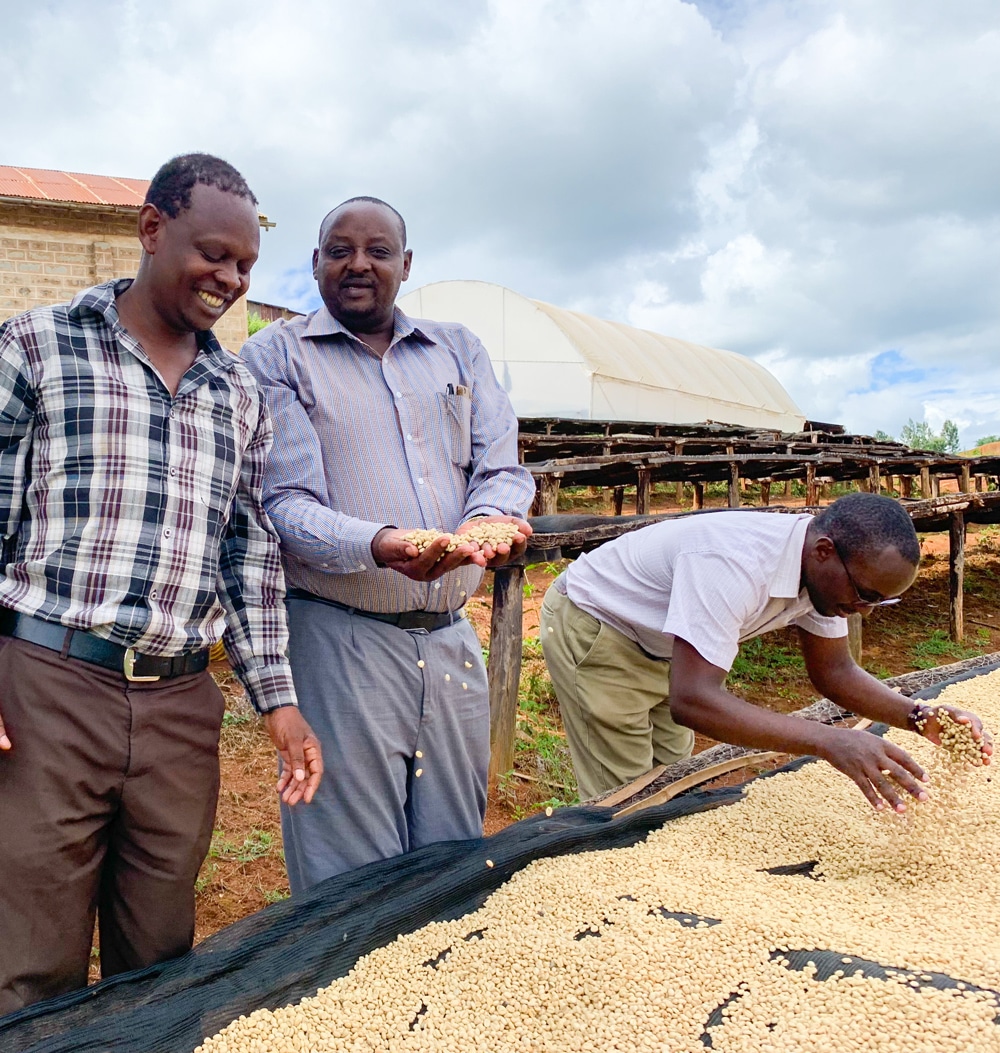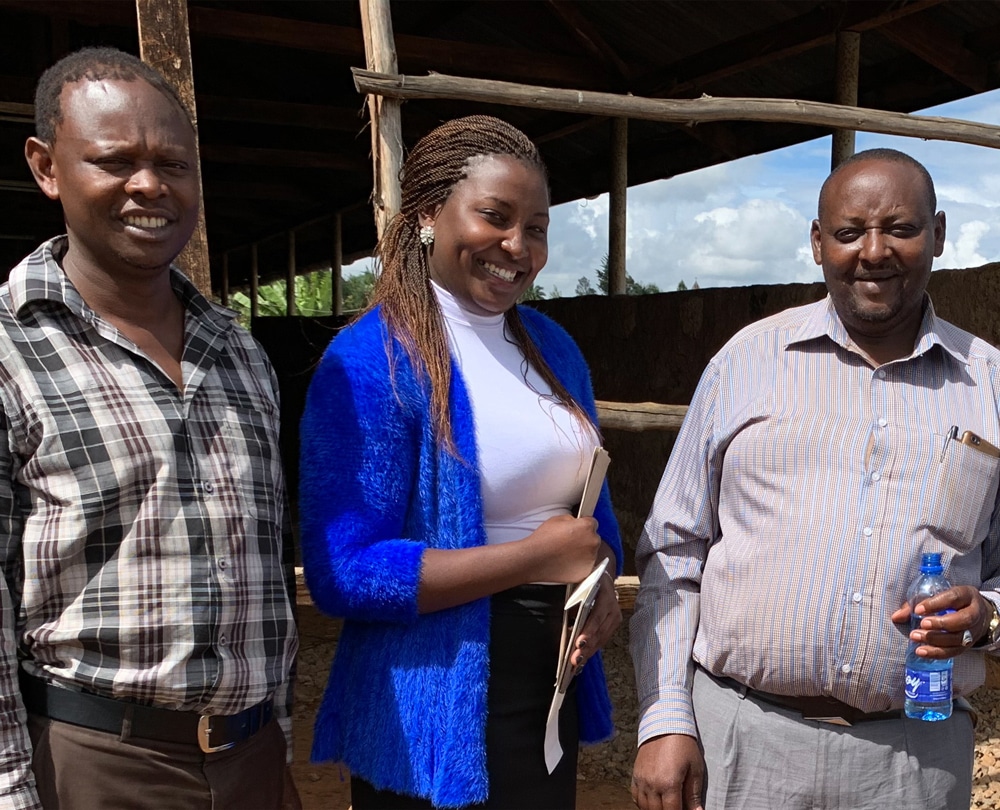For details on our current shipping information, please visit our FAQ page here.
If you still have any questions, please contact us here.
No products in the cart.
Continue shoppingUS$18.43
A classic Kenyan coffee with a distinct and intense fruity flavour and a refreshing acidity. Expect intense notes of blackcurrants and rose hips with delicate floral aromas.
| Weight | .311 kg |
|---|---|
| Dimensions | 23 × 15 × 7.5 cm |
| Cultivar | |
| Flavour Notes | |
| Producer | |
| Country | Kenya |
| Region | Kiambu |
| Process | Washed |
| Harvest | |
| Roast Profile | |
| Contents | Whole Coffee Beans |
| Bag Size | 250g |
Out of stock
SL28 is one of the most popular cultivars grown in Kenya because of its high yields and superior quality in the cup. It is no secret that I love this fruity cultivar that at its best taste like black currant juice, rhubarb or rose hip tea. SL28 was a selection made by the Scott Agricultural Laboratories in the 1930’s and along with the SL34 cultivar it is the most commonly grown cultivar in Kenya and an important reason why everyone thinks about fruity coffees when they speak of Kenyan coffees.
The coffee cherries are typically hand picked by the farmers and their family members. After delivering the coffee cherries to the wet mill the good coffee cherries are separated from the inferior ones by hand sorting and they are delivered in separate cherry hoppers.
The cherries are depulped and graded by using an old Aagard disc de-pulper that uses water and gravity to sort dense beans from less dense beans. Coffee of different grades are moved to separate fermentation tanks where the parchment coffee, with it’s mucilage still on, is dry fermented for about 12-36 hours over night. After fermentation the coffee is washed in clean water and graded once again by gravity. The more dense beans are dried separately from the beans with lower density and inferior quality.
The coffees are dried on elevated drying tables, where defect parchment coffee gets sorted out by hand. Drying the coffee takes about 10 – 14 days. During daytime the coffees are raked to ensure even drying. The drying tables are covered during the hottest times of the day to avoid over heating and also at night time to prevent condensation. The drying process is finished when the moisture content in the coffee beans is between 10-12%. After drying, the coffees are stored in conditioning bins before delivery to the dry mill. The coffees we buy from Kenya are always vacuum packed before they are shipped to Norway.
For details on our current shipping information, please visit our FAQ page here.
If you still have any questions, please contact us here.
We strongly recommend using the correct measurements and brewing techniques when you brew our coffees. Use a digital scale both to measure water and coffee in order to get consistent results, and we recommend using between 60 to 70 grams of coffee per litre (1000g) of water, depending on the brewing method, water quality and coffee used.
We strongly recommend using VST filter baskets. Both the 18g, 20g and the 22g basket is great for our coffee. The VST filters makes it a lot easier to extract the espresso properly which gives a lot more sweetness in the cup. They are also more or less identical to each other which makes it easy to be more consistent when brewing on several groups at the same time. You can buy the filters on our webshop, just make sure they fit your machine (ours fits all La Marzocco machines and machines with 58mm filter baskets). With the VST 18g filter basket, we recommend the following brewing parameters: 18-19g freshly-ground coffee, 25-35s brewing time, 35-38g of final brew liquid in the cup, 93°C-94°C brew water temperature.

Karinga is one of four wet mills (factories) belonging to the Gitwe farmers cooperative society. It is located in Kiambu, less than a two hour drive from Nairobi in central-Kenya. Like most of the 900 nearby farms that are supplying the wet mill with coffee cherries, the wet mill is situated at around 1900 meters above sealevel which is quite high in comparison to other factories in Nyeri, Embu ,etc. The high altitude means the coffee will ripen slower and develop more flavour as temperatures are lower in the highlands. It also means that the trees are less affected by leaf rust and other pests ( although in recent years it is not uncommon to see more pests and diseases in higher altitudes as well.)
This is the reason why a lot of the members of the cooperative are still growing the traditional SL28 and SL34 cultivars and have not swapped to the modern hybrids that are more tolerant to disease. The Gitwe cooperative employs their own agronomist which along with agronomists from marketing managers assist the farmers with know-how and advice throughout the growing season. It means the famrmers are able to take good care of their coffee trees so that they are less affected by disease and can produce high yields of good quality coffee year after year. This is for sure an important reason why Karinga and the Gitwe cooperative have won several awards for their quality over the years.
The farmers sell coffee cherries to the wet mills and deliver cherries several times during a harvest. The farmers are paid a price based on all the coffees they sold to the cooperative that year. The wet mill will process and dry the coffees before they get sent to the local mill for storage. Therefore, the cooperative by law charges no more than 20% of the selling price of the coffee. Most of the wet mills we buy from in Kenya publish the prices they paid for their coffees on their notice boards for the farmers to see and everything is recorded in their accounting. However, I still know that we can get better at providing transparency in Kenya and I really hope to step up our buying protocols and find more long term partners in Kenya in the years to come. All coffees are imported directly to Norway by ourselves.


Browse our brewing guides to learn how to make great tasting coffee at home. No matter if you're making french press, filter coffee, iced coffee or espresso - we'll help you get the most out of your coffee.